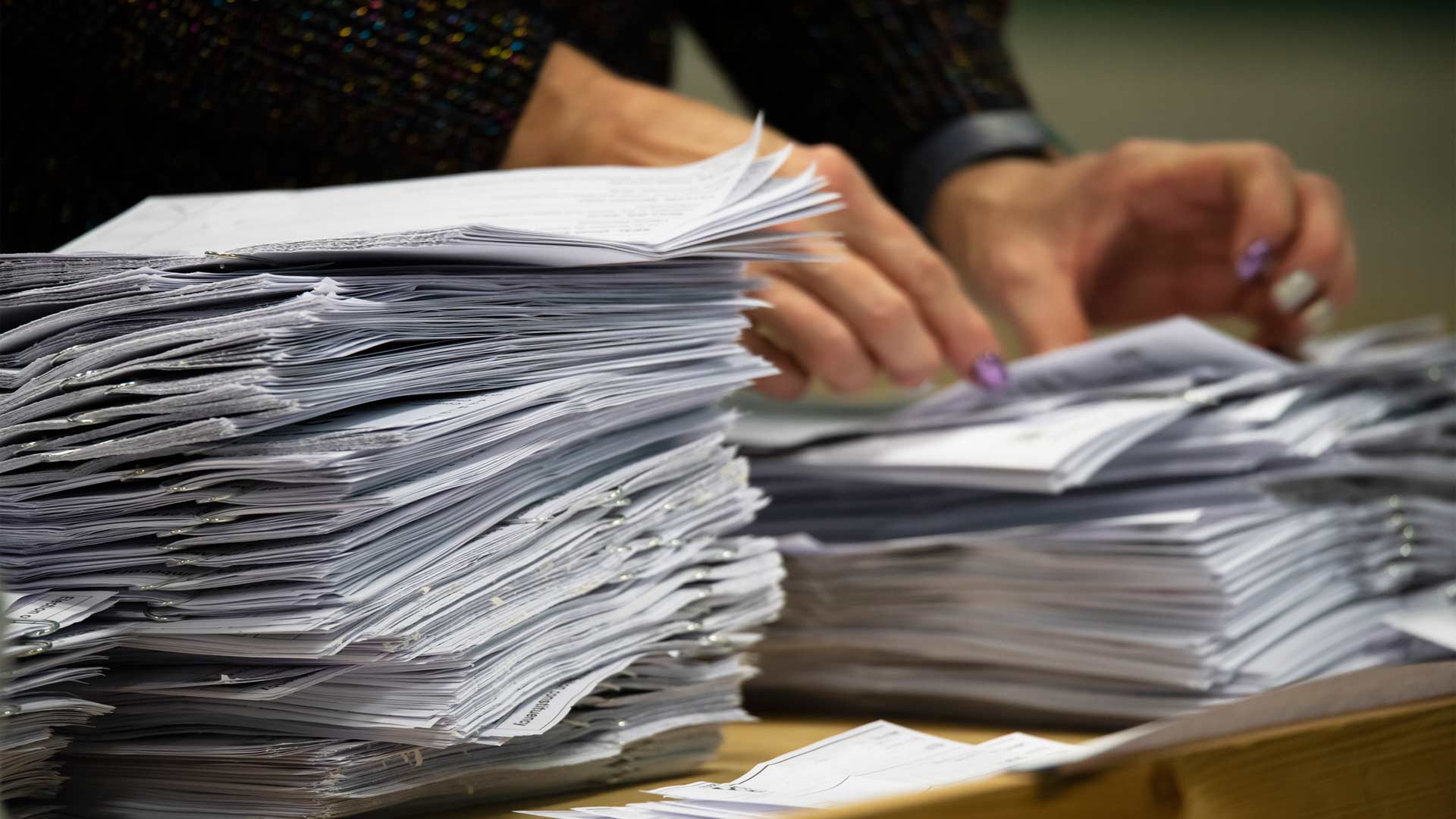
Editor’s note: The Division of Elections said it made a typo error in its initial audit update that showed 40 additional “yes” votes from District 6. There were no additional yes votes from this district.
After the first two days of hand counting, Alaska’s Division of Elections has reviewed 100,664 votes as part of its ongoing audit of all 360,852 ballots cast during the recent general election. The state is specifically looking at how Alaskans voted on Ballot Measure 2, which narrowly passed by a margin of 174,032 To 170,251.
As of Dec. 9, the audit has revealed an additional four “no” votes against Ballot Measure 2, while seven votes have been subtracted from the “yes” column.
The state still has roughly 260,000 more ballots left to examine, including about 135,000 absentees. The bulk of these ballots are in Anchorage where Ballot Measure 2 had strong support.
Even if the final audit results reveal that Ballot Measure 2 did not actually receive enough yes votes to pass, this would not legally change the certified election results since the audit is not considered an official recount. The deadline for requesting a recount has already passed, which means a lawsuit must be filed by Dec. 10 in order to legally challenge the results in court.
The state is working to complete the audit by Dec. 10, which would allow less than a day to file suit.
ALASKA WATCHMAN DIRECT TO YOUR INBOX
Ballot Measure 2, which will fundamentally change state election law, barely passed 55.5% to 49.4%. Out more than 344,000 total votes, it only won by 3,781.
On election night, the controversial measure was behind by roughly 25,000 votes. When absentee ballots were counted, however, this lead vanished. The dramatic reversal raised suspicion among many Alaskans who have raised concerns about the state’s use of Dominion voting machines and the record number of mail-in absentee ballots. This ultimately spurred the Division of Elections, under leadership of Lt. Governor Meyer, to call for an audit.
In addition to the audit, Ballot Measure 2 is also the cause of a lawsuit filed on Dec. 1. At issue is the fact that it creates a mandatory four-winner non-primary election, which does not allow political parties to select their candidates for the general election. It also forces voters to participate in ranked-choice voting, which penalizes those who only vote for one candidate rather than ranking their top four choices.







